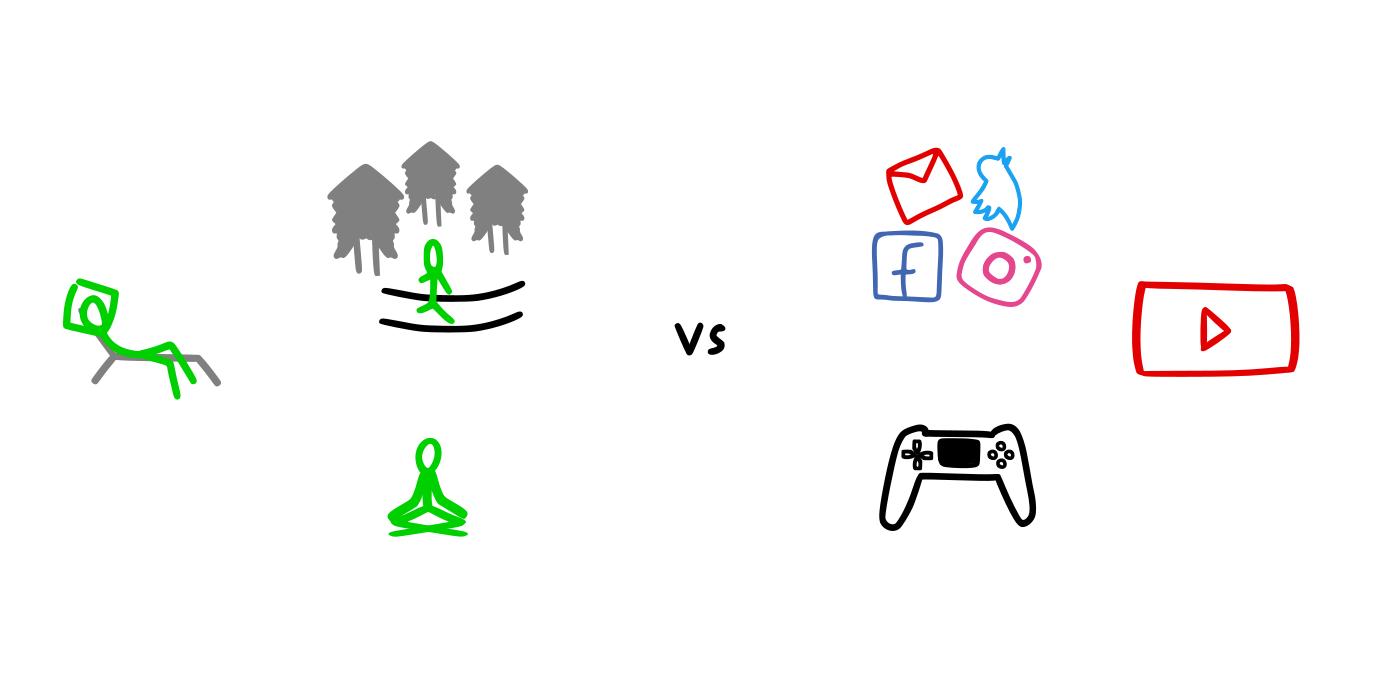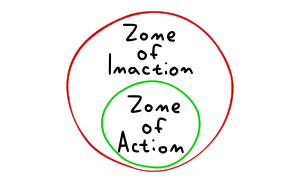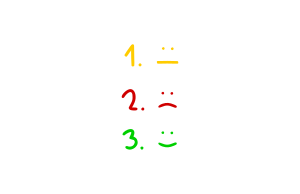The difference between Netflix, TV, and cinema

One of the common objections people say is:
There isn’t any difference between me watching shows on Netflix and my relatives watching TV. There isn’t any difference between me watching Twitch and other people watching sports on TV.
Playing video games is better than wasting time scrolling on Instagram or Reddit.
Well, yes and no.
Let’s take for example watching Twitch vs watching sports: In a sense, they’re the same. If they bring you fun, they bring you fun. However, watching games (streams) has a higher risk of compulsivity:
- Sports have a predefined beginning and end.
- People generally don’t watch Twitch with others, they do it alone.
- Twitch never ends, you can always switch to a different channel so it’s better used to escape.
In both cases, if you can moderate then it’s just fine. People also get addicted to watching sports but the probability is lower. It doesn’t have the qualities to be able to hide in front of your responsibilities forever.
We call this the risk of compulsivity. What’s the chance of you binging it, escaping through it for hours and hours?
The difference between Netflix, TV, and cinema
Going to the cinema:
To consume this form of media, you need to dress up, arrive there, buy a ticket - it’s time restricted - after you watch a movie, it’s over. Realistically, even if you become “addicted” to going to the cinema - you will do it once a week at most because otherwise, you would run out of movies pretty soon.
Watching TV:
My mom watches a TV show that airs twice a week - so every Tuesday and Thursday she sits in front of the TV for an hour and watches it and then her life goes on. She doesn’t skip sleep because of it.
My mom also watches the news at 7 p.m. almost every day. Yes, she’s kinda addicted to this (or rather used to this) but it doesn’t interfere with her life in any way.
People definitely waste a lot of time in front of the TV and some do get addicted. However, the risk of compulsivity isn’t that high because it doesn’t operate on your demand. You can’t choose what airs next.
Netflix:
You have access to everything all the time. Even Netflix knows this and that’s why they release the whole season at once.
Their default setting is to autoplay the next episode to keep you going.
Their whole design is made towards binging: autoplay of the next episode, recommendations, releasing whole seasons at once. These small adjustments add up, and make the risk of compulsivity go through the roof.
In the past, whenever new technology (books, radio, cinema, TV) would appear, there would be critics and fearmongers proclaiming how this new technology is dangerous.
This time it’s a little bit different because the Internet has a much greater ability to make us addicted.
We go into much more detail here but to summarize: smartphones release more dopamine, are always present, work like little casinos, and society normalized them.
Or simply the risk of compulsivity is much higher.
Asking: “What’s the risk of compulsivity?” can help you decide whether the activity is good for relaxation. This is essential especially if you’re like us - once you get into something, you can’t get out until it’s over.



